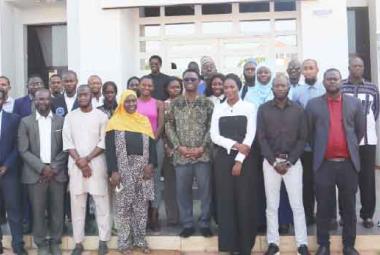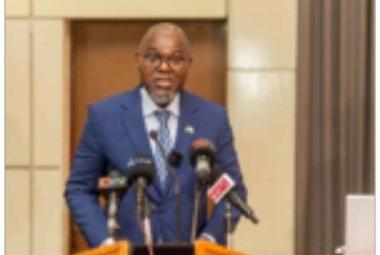By Lamin B. Darboe
The West Africa Birds Study Association (WABSA) together with the Department of Parks and Wildlife Management (DPWM) and stakeholders recently convened a day-long forum on the alternative use of vulture parts as traditional medicine held at Badala Park Hotel in Kotu.
Speaking at the forum, the Executive Officer at the West Africa Birds Study Association, Mr Lamin Jobaate informed participants that the project is currently being implemented by the Birdlife International’s partner NGOs in The Gambia, Senegal and Guinea Bissau.
According to Mr. Jobaate, the project is funded by the Illegal Wildlife Trade (IWT), which is a UK Government grants scheme that provides support to innovative and scalable projects to reduce pressure on wildlife from illegal trading and in doing so, reduce poverty.
The project Mr Jobaate went on is coordinated by the Birdlife International with the objective to identify alternatives as opposed to the vulture parts with the sole aims to minimise the rapid declining of the vulture population particularly the hooded vultures.
He explained that before the advent of the project, WABSA and DPWM as well as other key stakeholders engaged in several conservation programmes on vultures including the vulture population count across the country.
He said they also sensitised local communities on the importance of vultures and the vigorous control and management of the spread of the recent avian flu which have resulted to the death of large numbers of vultures in The Gambia.
“WABSA noticed the need for the involvement and participation of stakeholders in dealing with the vulture protection and conservation. To achieve this, it will be strengthened through different mechanisms; such as research, advocacy, ecotourism and awareness campaign with UTG students, government departments, NGOs, CBOs to restore vulture habitats and strengthened the wildlife laws and regulations, “Mr. Jobaate concluded.
Mr Basiru Manneh, Park Warden at DPWM deputising for the Director, Department of Parks and Wildlife Management, said vultures provide critically important ecosystem service by cleaning up the carcases and other organic waste in the environment, thus reducing the spread of dangerous diseases.







